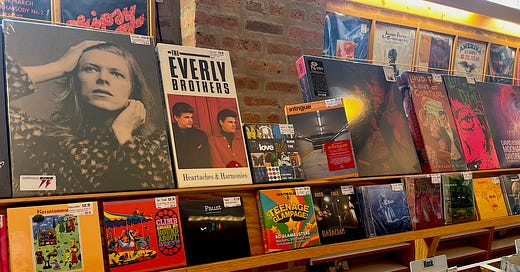Investigating Rock Radio with Rick Beato
I went on Rick's YouTube Channel and we talked a lot about things that we're not supposed to mention.
My friend Rick Beato invited me over to make a video with him during the holiday, and the results are now live.
There’s a couple of things I’ve learned from hanging out with Rick over the last couple of years. Making videos is really hard. He’s had a lot of practice at this point, but there’s still a huge amount of planning and thinking that takes place …
Keep reading with a 7-day free trial
Subscribe to Stars After Stars After Stars to keep reading this post and get 7 days of free access to the full post archives.





